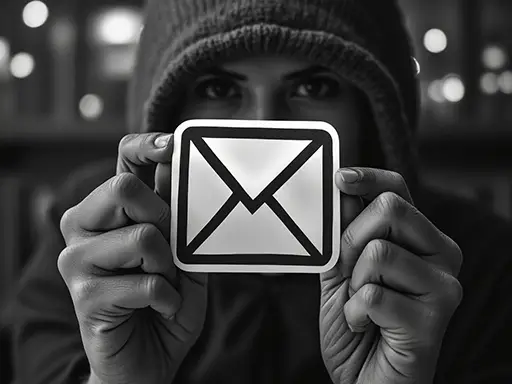Communication happens at lightning speed. As a result, the way we manage our online identities can have significant implications. Privacy is a delicate balance, especially when it comes to email.
While we rely on robust services like Gmail to protect our information, a simple mistake can unravel that security.
Recently, a reminder about this urgent issue sparked my interest in discussing how we can enhance our privacy and security, particularly through tools like the Incognito Browser app.

The Vulnerabilities of Email Addresses
Gmail boasts impressive security measures that guard nearly two billion users against unauthorized access. With advanced systems designed to thwart malicious attacks and spam, it’s easy to assume that our accounts are safe.
However, one critical vulnerability lies in our own practices around email addresses. Many of us have heard about the quirks of Gmail—specifically, how dots in addresses don’t matter.
For instance, johnsmith@gmail.com and john.smith@gmail.com are treated as the same account.
This can lead to unintentional exposure of private information, especially when sending emails to an address that isn’t configured correctly.
Reflecting on my past experiences, I used to operate a Gmail account based on a basic format, and it was easy for users to mix up similar addresses.
I remember receiving messages intended for others, only to find out later that someone thought they were being clever by slightly altering the address.
These seemingly minor errors can result in sensitive information—whether it’s personal messages or important documents—landing in the wrong hands.
How to Safeguard Against These Mistakes
In navigating the complexities of online security, I turned to the Incognito Browser app to address my broader privacy concerns while browsing the web. While it is primarily known for its focus on privacy during internet browsing, it also helps frame a crucial conversation about digital security practices as a whole.
This app allows users to engage online without the fear of their activities being tracked or their data being exploited, a consideration that’s especially relevant when sending and receiving important email communications.
Using the Incognito Browser creates an environment where your online actions are private and secure.
Its features, such as agent cloaking and built-in ad blocking, significantly reduce the risk of being monitored by third parties while reinforcing the need to stay vigilant about privacy in every aspect of our digital interactions.
In addition to employing tools like the Incognito Browser, users should consider implementing unique email strategies.
Services such as Proton Mail not only provide encryption for email communications but also offer features to hide real email addresses through aliases.
For example, instead of sharing your primary email, you can generate disposable addresses that forward to your inbox, effectively keeping your primary account under wraps.
Recognizing the Value of Personal Responsibility
As we dissect the multi-layered issue of email privacy, it’s crucial to acknowledge that though service providers like Google offer robust security measures, the responsibility ultimately lies with the users.
Missteps like mistakenly sending information to the wrong email address underscore the necessity of remaining diligent about how we interact online.
By taking proactive steps — whether it be using specialized email services or enhanced browsing apps like the Incognito Browser—we can reclaim control over our digital privacy.
As I reflect on the potential consequences of these privacy lapses, it’s evident that being aware of how minor mistakes can lead to significant breaches of privacy is vital.
The conversation surrounding online safety is not just for tech enthusiasts; it’s a collective responsibility that we all share as we navigate our increasingly digitized lives.
In summary, while we may place our trust in tools like Gmail to keep our accounts secure, staying informed and using privacy-centric applications like the Incognito Browser is essential for maintaining our digital security.
Embracing these layers of protection can pave the way for a safer online experience where one’s personal information is genuinely safeguarded. Privacy is a right—let’s make sure we all fight to protect it.



